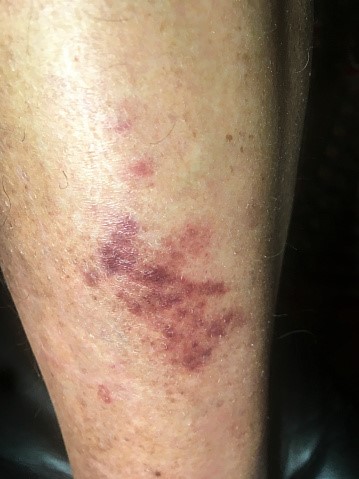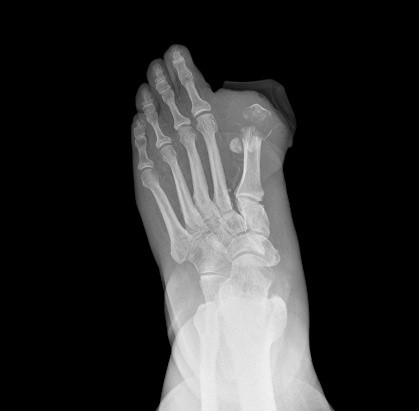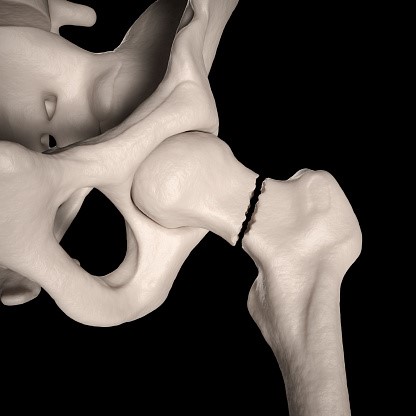Treatment for Metabolic Alkalosis-Nursing Student Guide
Introduction
Metabolic alkalosis is a condition in which the pH of blood becomes too alkaline. In this article, we’ll examine everything to do with metabolic alkalosis-causes, types, signs, diagnosis, treatment, prevention measures, risk factors, other types of the disease, how it affects life, etc. As you read, keep in mind our our ivy league writers are ready to help with your nursing assignment in case you get stuck or need assistance due to other reasons, such as a busy schedule. All you need to do is place an order with us.
Disclaimer: The information presented in this article is not medical advice; it is meant to act as a quick guide to nursing students, for learning purposes only, and should not be applied without an approved physician’s consent. Please consult a registered doctor in case you’re looking for medical advice.
Causes of Metabolic Alkalosis
Metabolic alkalosis is caused by a decrease in blood acidity, leading to an increase in bicarbonate concentration. This can occur when one or more of the following occurs:
- Any kidney (renal) disease that results in loss of excessive amounts of HCO3- and decreased secretion of urine – renal tubular acidosis. Diuretic therapy. This decrease in HCO3- increases the blood pH, becoming more alkaline than normal (i.e., a state of metabolic alkalosis).
- Metabolic alkalosis can also occur after excessive vomiting or diarrhea, as the loss of large amounts of HCO3- via the gastrointestinal tract can increase blood pH. Metabolic alkalosis may also result from other causes, including:
- Primary hyperaldosteronism – Aldosterone is a hormone produced by the adrenal gland that helps regulate electrolytes (e.g., sodium, potassium) and water balance in your body. If aldosterone levels are abnormally high (hyperaldosteronism), it may cause the body to excrete too much HCO3- into the urine.
- Severe loss of blood – Blood is an acid solution that can help regulate pH by removing excess protons and any bicarbonate. Low blood volume can lead to the removal of excess HCO3- from the blood and a rise in ph.
- Blood disease or disorders that affect the red cells – Anemia and other conditions can increase hemoglobin concentration, increasing HCO3- in the blood.
- Cancer – Cancer cells are usually anaerobic, meaning they normally use fermentation to produce energy rather than using oxygen in cellular respiration. Fermentation produces lactic acid, and if the rate of cancerous cell growth outpaces its ability to remove it from the body via other means, it may increase blood ph. Cancer cells can also force more bicarbonate into the plasma and red blood cells through simulation.
Signs and Symptoms
Metabolic alkalosis can cause several signs and symptoms, including:
- Severe muscle cramps, spasms, or stiffness (particularly in the back)
- Increased frequency of urination – nausea and vomiting – dizziness – pain in eyes. It may also cause constipation in some patients due to loss of bicarbonate from the blood through the intestinal tract. This loss of bicarbonate can lower intracellular pH and result in the contraction of smooth muscle in the intestines, which increases intestinal secretions to compensate.
- Lower than normal levels of potassium (hypokalemia) and calcium (hypocalcemia). Severe cases may also result in hypomagnesemia, which is decreased magnesium levels in the blood.
Types of Metabolic Alkalosis
There are 2 types of metabolic alkalosis that include:
Chloride responsive metabolic alkalosis – The decrease in blood acidity is caused by an excess of chloride. The body may excrete excessive HCO3- in the urine to compensate for this, which can also trigger metabolic alkalosis. Low levels of chloride are usually present in cases of gastric reflux disease (GERD), diarrhea, or vomiting.
Chloride unresponsive metabolic alkalosis – This form of metabolic alkalosis is not caused by an excess of chloride and can be a more serious condition. It may result from:
- Hypoparathyroidism
- Other conditions such as cirrhosis, chronic pancreatitis, and hyperaldosteronism can also lead to this type of metabolic alkalosis.
Chloride responsive metabolic alkalosis is usually milder compared to chloride unresponsive metabolic alkalosis and can be treated by taking a bicarbonate containing antacid medication such as Rolaids or Tums.


Diagnosis of Metabolic Alkalosis
Diagnosis of metabolic alkalosis is often made by a primary care physician or someone specializing in internal medicine.
Medical history- Medications and family history can reveal kidney disorders, acidosis, or other underlying conditions that can cause metabolic alkalosis.
Physical exam: If there is evidence of hyperventilation or a tumor, it can be detected by taking the blood pressure and pulse. Diastolic blood pressure greater than 90 mm Hg suggests respiratory alkalosis, while a heart rate greater than 100/min suggests increased stress.
Physical examination for signs of dehydration due to vomiting or diarrhea and any evidence of congestive heart failure. Urinary dipsticks are done to check for ketone bodies in the urine.
Laboratory tests – used to measure bicarbonate levels which can be evaluated by several methods depending on the severity of the alkalosis: Arterial blood gas (ABG)- used to evaluate pH, CO2, and oxygen levels in the blood. A normal serum bicarbonate level is 24-27m Eq/L.
Blood gas analysis – measures HCO3– levels directly from a sample of capillary blood collected by pricking the finger. This test can be done at home.
Blood test Urinalysis Electrolyte panel – to check calcium, potassium, and sodium levels, which can be used to identify the underlying cause of metabolic alkalosis.
Ps: You may also learn about the nursing diagnosis of other common conditions/diseases, such as Hip Fracture
Treatment of Metabolic alkalosis
Treatment of metabolic alkalosis involves reversing the underlying cause. In cases where this is not possible, dialysis can control the symptoms and prevent further damage to vital organs such as the heart or kidneys.
Dialysis is a procedure done in a hospital that involves filtering metabolic alkalosis out of the blood. While this treatment doesn’t cure the underlying cause, it can halt further damage to organ systems.
Limiting the intake of potassium-containing foods and medications can help treat metabolic alkalosis.
Since primary renal causes are almost always preventable, proper measures should be taken to avoid them when possible, such as staying hydrated during exercise, avoiding dehydration after workouts (especially in hot weather), and drinking plenty of fluids while taking diuretic medications.
Metabolic alkalosis can be treated by: restoring acid-base balance using home blood gas analysis, correcting electrolyte imbalances (especially low sodium), treating any medical problems causing hyperventilation, and prescribed diuretics to help excrete excess HCO3- if necessary.
Home treatment of metabolic alkalosis includes:
- Resting often reduces stress by breathing slowly through pursed lips
- Drinking more water to replenish fluids lost from vomiting, lowering protein intake in the diet, avoiding laxatives that could contribute to volume depletion, getting enough rest, managing pain disorders such as panic attacks or COPD
- Dialysis can be done at home (hemodialysis), in a clinic, or even in the hospital on an emergency basis when there is severe metabolic alkalosis. Home dialysis involves a blood purification machine that works similar to the kidney by removing excess bicarbonate and other waste products from your blood, which gets returned to you through the tubing. You can wear it for 8 hours every night with no discomfort.
You may also check the treatments for other common conditions/diseases, such as appendicitis
Metabolic Alkalosis Prevention Measures
It is important to seek medical help if you suspect that you have metabolic alkalosis. Although the condition is considered benign, it can cause permanent damage to vital organs if left untreated.
Most cases of metabolic alkalosis are related to kidney disorders, and many of them are preventable through lifestyle changes such as:
- Exercising regularly.
- Avoid dehydration after exercise.
- Drink plenty of fluids when taking diuretics.
- Avoid unnecessary medications with a high risk of causing potassium retention (including NSAIDs and ACE inhibitors).
Metabolic alkalosis can also be prevented by staying hydrated during hot weather.
A healthy diet is important since many of the underlying conditions that cause metabolic alkalosis are related to a diet low in protein and high in salt (sodium). A diet that includes plenty of fresh fruits and vegetables and whole grains, lean meats, and seafood is recommended.
Metabolic alkalosis can be diagnosed at home using home blood acidity tests such as pH test strips or a bicarbonate meter. This non-invasive technique is a simple way to check for metabolic alkalosis. It can help identify the underlying cause if no underlying medical problems are found in patients with symptoms of this condition.
Metabolic alkalosis prevention measures include:
- preventing kidney disorders from developing or progressing by maintaining good hydration,
- preventing dehydration while exercising in hot weather,
- staying away from medications with a high risk of causing potassium retention (including NSAIDs and ACE inhibitors),
- Avoid prescribed diuretics that can cause dehydration during exercise.
How is Life after Metabolic Alkalosis?
After successful treatment of metabolic alkalosis, patients can lead full and healthy lives. This condition does not put them at an increased risk for developing other medical conditions in most cases.
Most people with this condition can completely recover without any long-term complications if the underlying cause is properly treated. However, there is a risk of experiencing more episodes of metabolic alkalosis in the future if they develop a serious medical condition such as kidney failure and are not treated on time.
The best way to avoid complications from this condition is to maintain good communication with your physician so they can monitor changes in your health status over time.
You can also ask your doctor about the risks and benefits of taking medications that help treat underlying medical conditions causing metabolic alkalosis. It is important to avoid unnecessary medications with a high risk of causing potassium retention (including NSAIDs and ACE inhibitors) after treatment of this condition.
Who is at Risk for Metabolic Alkalosis?
Persons at risk of developing metabolic alkalosis include:
Diabetics with poor metabolic control, such as people with poorly controlled insulin or blood sugar levels. An unchecked rise in blood sugar can cause excess production of H+ ions, which can lead to metabolic acidosis.
Persons suffering from hyperventilation disorders such as panic disorder or COPD (chronic obstructive pulmonary disease)
Persons with heart problems, especially those with a rapid or irregular heartbeat. This condition may cause an imbalance in the concentration of potassium and bicarbonate ions (two other components of blood that balance out acidity levels).
People taking diuretics such as Lasix to treat conditions such as high blood pressure and edema
Patients who are using medications with a high risk for causing potassium retention (including NSAIDs and ACE inhibitors). Potassium is also another important ion that helps balance out blood acidity levels.
Persons who tend to drink excessive amounts of alcohol negatively affect the kidneys’ ability to regulate electrolytes in the body.
Factors that can trigger metabolic alkalosis include:
Drinking too much water, which causes excessive production of H+ ions,
Drinking too many diuretic pills, which also causes a rise in hydrogen ions,
Hyperventilation and panic attacks,
Medical conditions such as heart arrhythmia,
Eating too much or eating foods that are low in potassium and high in salt (sodium),
Excessive sweating is caused by excessive physical exercise, hot weather, and fever.
Pregnancy-related symptoms (this condition is typically associated with diabetic women who are treated with insulin)
Other Types of Alkalosis
There are other types of alkalosis, including:
Respiratory alkalosis
This type of alkalosis is caused by excessive amounts of carbon dioxide in the blood (hyperventilation). There are two main types of primary respiratory alkalosis:
Hyperventilation syndrome
Emotional and physical stress can cause hyperventilation, which means over-breathing or breathing more air than necessary. This is typically characterized by rapid breathing that does not increase oxygen levels in the blood.
Respiratory acidosis
This condition is caused by an imbalance of carbon dioxide (CO2) and oxygen levels in the atmosphere. This condition may cause:
Excessive breathing due to stress or anxiety, breathing due to low blood oxygen level, pneumonia, pulmonary embolism, or COPD.
Hypokalemic Alkalosis
This type of alkalosis is a result of a deficiency of potassium in the body.
Muscle weakness, mental disorientation, and sluggishness are some of the symptoms. The following are possible causes of this condition:
- Kidney failure
- A highly acidic diet that is low in potassium and high in sodium (bicarbonate)
- vomiting or diarrhea
- Excessive use of laxatives
- Severe injury, especially to the kidneys, may lead to kidney failure
Hypochloremic alkalosis
Inadequate chloride in the body causes this type of alkalosis.
This condition is more common in infants and young children, especially if they suffer from chronic diarrhea or vomiting, prolonged dehydration, cystic fibrosis, or tuberculosis.
When to visit the doctor
Consult a medical professional immediately if you are having any of these symptoms:
- Ongoing vomiting or diarrhea
- High blood pressure (hypertension) or low blood pressure (hypotension)
- Tingling sensation in the skin (paresthesia), numbness of the limbs, irregular heart rate, and lightheadedness.
- Depression, mental confusion, or difficulty thinking
- Breathing difficulty due to pain in the chest area as well as headache and dizziness.
The above symptoms may be signs of other medical conditions which should not be ignored. Consult your doctor right away so that appropriate treatment can be given for optimal recovery.
If you are diagnosed with alkalosis, make sure to follow your doctor’s recommendations for treatment. Making lifestyle changes in addition to following your doctor’s instructions will help you prevent further complications and restore your body back to balance once again.
Lastly, we recommend that you check nursing metaparadigms to learn more about the nursing philosophy, and our list of research topics in nursing/psychology to make it easier to select a topic for your upcoming research paper/essay/thesis.
Also, in case you prefer that our top writers handle your assignment due to reasons such as a busy schedule, then press the “Write my Essay” button below and follow the simple steps. Thank you!







